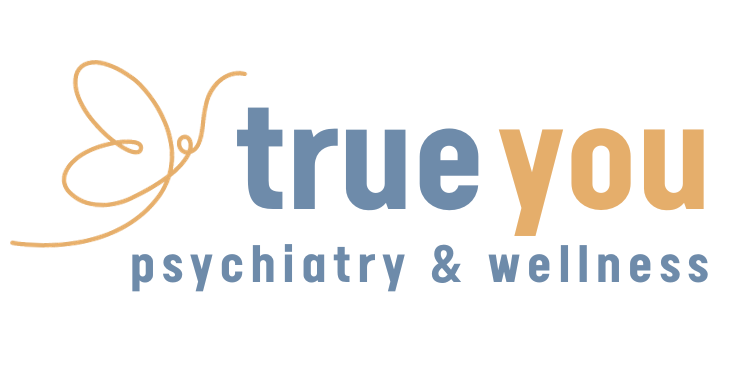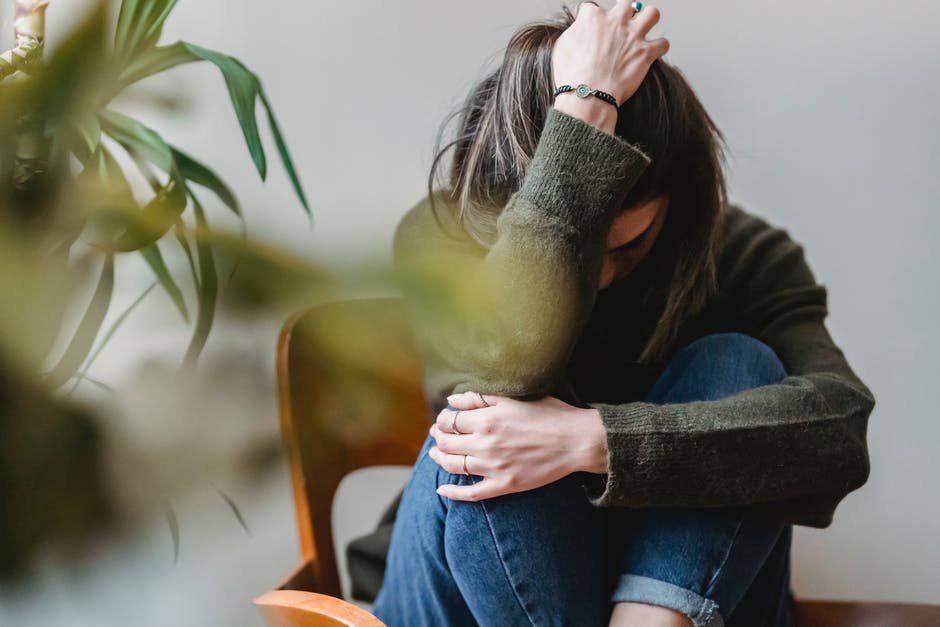How To Stop Anxiety Chills: Withdrawal Symptoms and Holistic Treatment
I have always liked T. S. Eliot's quote, “Anxiety is the handmaiden of creativity.”
But for millions of people in this world, anxiety is not always a motive for inspiration; it can be a chronic condition.
More than 40 million adults in the United States are affected by mental health disorders, such as generalized anxiety disorder and panic attacks.
It also revealed that one percent of the population is being killed each year.
These people not only have to endure mental torture in the form of anxiety but also get anxiety chills – a person shivers as if the blood has become cold.
While these are not only anxiety shivers, they are manifestations of anxiety and withdrawal, the signs of a struggling body that needs to be heard.
One question that lingers in many people's minds is how can these paralyzing chills be prevented?
When experiencing this level of anxiety chills, it is crucial to seek anxiety treatment from a qualified healthcare professional.
Dr. Giordano has helped many people here with her expertise in psychiatric medication management and holistic approaches to mental health.
You can also find a way out without further taking meds for anxiety chills.
If you're struggling with these symptoms in your mental health journey, know that you're not alone, and there are ways to regain control and warmth in your life.
Let's find out how!
What Are Anxiety Chills & How Do They Feel Like?
Anxiety chills are a physical symptom that is characterized by sudden coldness or shivering and are often associated with anxiety, panic attacks, or stress.
Unlike typical chills, anxiety chills are not caused by a decrease in body temperature or the cold environment. Instead, they are due to the body’s stress response.
Anxiety or panic means that your sympathetic nervous system has kicked in, signaling your body’s fight-or-flight mode.
In this response, the brain sends signals to narrow down the blood vessels and relocate blood from the limbs to the essential organs.
This is why your hands and feet may feel ice cold during anxiety chills.
Lack of circulation in your skin results in shaking and shivering as your body attempts to warm itself up again.
Anxiety chills, experienced subjectively, can be described as the sensation of coldness that appears to originate from within the body and not from the environment.
Besides the shivering that comes with the cold, the person may begin to sweat or get goose pimples.
Psychologically, anxiety chills can exacerbate feelings of anxiety and intensify the experience of having anxiety.
The intensity of the cold sensations is often described as painful and beyond personal control. Understanding that anxiety is the root can help reduce the fear that one has a fever or an illness.
What Are The Causes Of Anxiety Chills?
Anxiety chills might occur due to the following major reasons:
Activation of the Fight-or-Flight Response
Anxiety activates the ‘fight or flight response,’ a physiological phenomenon that prepares the body to either confront or avoid danger.
When this response is activated, the body releases adrenaline and other stress hormones and experiences the following physical changes.
These include heightened pulse rate, breathing rate, and muscle contraction.
Consequently, blood flow is shifted to more critical muscles, slowing skin circulation.
A drop in skin temperature can cause chills and shivering, especially when the body feels threatened, which can be particularly intense for individuals with obsessive-compulsive disorder.
Hyperventilation
Hyperventilation is one of the most obvious physical symptoms of anxiety, which is a common phenomenon that is associated with rapid or shallow breathing.
This condition affects the levels of oxygen and carbon monoxide in the blood.
It leads to a fall in the concentration of carbon dioxide, which causes the blood vessels to narrow.
All of this leads to inadequate blood supply to the limbs.
The reduced blood flow results in chills due to the sensation of coldness.
Hyperventilation can also cause other symptoms, such as dizziness and lightheadedness, which only add to the uncomfortable feelings that are typical for anxiety chills.
Medication Withdrawal
Some of the drugs that have withdrawal symptoms include anxiety or depression drugs such as benzodiazepines or selective serotonin reuptake inhibitors.
These symptoms include a rebound effect wherein the anxiety symptoms manifest or intensify.
This withdrawal-induced anxiety can be challenging because it not only worsens the underlying anxiety but also gets accompanied by chills.
Stress-Induced Sweating
This implies that high levels of anxiety can trigger the sweat glands in the body, causing excessive sweating.
This response is part of the body’s overall stress reaction.
Sweating involves the secretion of sweat from the skin's surface. When this sweat dries up, it is often accompanied by chills.
This phenomenon arises because when the body is under stress, it sweats.
When this sweat dries up, one is likely to experience cold chills even without a cold source.
Psychogenic Fever
Extreme stress and anxiety may lead to a psychogenic fever in which the fever is caused by stress and not an infection.
After the temperature is high, the drop in temperature causes (cold) chills.
This is why our body experiences such temperature changes under stress, highlighting the importance of the mind-body connection.
Withdrawal Symptoms and Anxiety Chills
Symptoms that appear as withdrawal symptoms include anxiety chills.
It happens due to the body’s inability to properly monitor temperature and adjust to chemical alterations in the brain and the nervous system.
Coldness or sudden sweating, trembling, and a prickly feeling on the skin are likely stress reactions to changing neurotransmitter levels.
Common withdrawal symptoms include:
Headache
Nausea
Dizziness
Fatigue
Insomnia
Irritability
Anxiety
Depression
The severity and duration of withdrawal symptoms depends on several factors:
The specific medication being reduced
The dosage and length of time on medication
The rate of medication tapering
Individual biology and sensitivity
Use of multiple medications
History of addiction or dependency
Presence of pre-existing medical or mental health issues
Natural Remedies for Anxiety Chills
Fear is something that can be debilitating, but there are many ways to manage it without having to resort to using medication.
There are several steps that you can incorporate into your daily life to minimize your anxiety symptoms:
1. Why Not Begin Your Morning with Protein?
Consuming protein products like eggs, yogurt, or nut butter toast as breakfast helps maintain blood sugar stability.
This stability eliminates the possibility of energy crashes that may worsen anxiety and nervousness.
By doing this, you ensure that your body is supplied with constant energy from the protein and minimize the chances of having energy dips that lead to anxiety chills.
2. Practice Deep Breathing
Deep breathing exercises help when anxiety starts to rise.
The 4-7-8 breathing method stimulates the parasympathetic nervous system.
In this method, you inhale for four seconds, hold your breath for seven seconds, and exhale for eight seconds.
This activation helps to relax and does not allow stress or anxiety chills to occur in the first place.
Relaxation, or controlled breathing specifically, breaks the loop of ruminative thoughts and stress-related physical changes in the body.
3. Eat Magnesium-Rich Foods
Consuming more magnesium foods, including green veggies, avocados, nuts, seeds, and chocolates, minimizes anxiety and chills.
There is evidence that magnesium is involved in nerve transmission and the modulation of neurotransmitters, which is paramount in controlling anxiety.
When your diet contains sufficient magnesium, your body has natural ways of handling stress and anxiety.
It minimizes the occurrence and intensity of symptoms, including chills.
4. Spend Time in Nature
Spending time in natural settings such as a park, forest, or backyard yields relaxation therapy for anxiety chills.
Several studies show that the outdoor environment reduces stress hormones, heart rate, and blood pressure.
This indicates that the natural environment may pose a curative effect on anxiety through its ability to decrease physiological activation.
Therefore, it helps with diminishing the experience of chills and other anxiety-related symptoms.
5. Switch to Matcha Tea
Substituting coffee for matcha green tea provides a less harsh source of caffeine, which can be helpful for anxiety chills.
Matcha contains L-theanine, an amino acid associated with relaxation and minimizing stress levels.
While coffee contains more caffeine, which may increase the symptoms of anxiety, matcha offers a more even energy boost without the side effects.
If deciding which beverage to choose, it is better to opt for matcha tea since it can help the body stay calm and avoid anxiety chills.
6. Stay Warm and Cozy
Anxiety makes you feel chilled because the body’s stress response causes the blood to rush to the muscles instead of the skin.
Preventing the body from overheating or getting cold can offset this effect, for instance, by donning a blanket or a sweater.
Taking a warm bath is another good idea, as heat relieves muscle tension and interferes with the flow of negative thoughts.
Heat can also elicit a relaxation response in the body system.
It makes the intensity of anxiety chills less severe, offering a warm, comforting feeling.
7. Self-Massage Techniques
Some other great ways include using a tennis ball or massage tools on different parts of your body, including your shoulders, back, and feet.
Muscle tension is one of the symptoms of anxiety, and it can precipitate the feeling of chills.
Massage relieves this tension, thus helping the person to relax.
Self-massaging using deep pressure activates the body’s nervous system and decreases anxiety reactions like chills by improving blood circulation and relieving muscle tension.
Another effective method to alleviate muscle tension is progressive muscle relaxation, which involves tensing and slowly releasing different muscle groups.
8. Acknowledge Your Emotions
Another way to reduce or prevent anxiety chills is to identify and acknowledge anxious feelings.
Rather than dismissing these feelings, acknowledge them and observe where the pressure manifests in your body.
Acknowledging emotions can minimize the physiological effects of stress, such as chills, since the body can be brought back to balance.
Seeking Professional Guidance for Anxiety Chills - Dr. Giordano
If you are going through anxiety chills or other withdrawal symptoms after cutting back on or stopping your medicine, it is very important to get help and advice from a trained medical professional. It can be hard and even dangerous to try to taper or stop taking your medicine on your own.
Consulting Dr. Jennifer Giordano for help with anxiety chills due to medication tapering and withdrawal management comes with many benefits:
With over years of experience, Dr. Giordano is an expert in helping patients safely reduce their medication dependency that is becoming a source of their anxiety chills. Her extensive knowledge ensures effective, individualized treatment plans.
She takes a personalized approach, getting to know each patient and understanding their unique needs. Her compassionate support provides comfort through the difficulties of withdrawal.
By setting realistic expectations about the process, Dr. Giordano prepares patients for potential challenges while inspiring hope.
Having an experienced professional oversee medication tapering minimizes risks and ensures the highest chances of success.
Conclusion (There's Always A Way Out!)
Withdrawal from medications and anxiety chills are two problems that make it hard to get better.
The physical and mental symptoms of anxiety chills can be very annoying and make it hard to go about your daily life.
If you're ready to take control of anxiety chills and withdrawal, the most important step is to schedule an appointment with Dr. Jennifer Giordano.
Her holistic (such as talk therapy, support group, and lifestyle management) integrative approach will help you successfully manage symptoms and transition off medications.
Contact her today to book your consultation - take the first step towards recovery.






